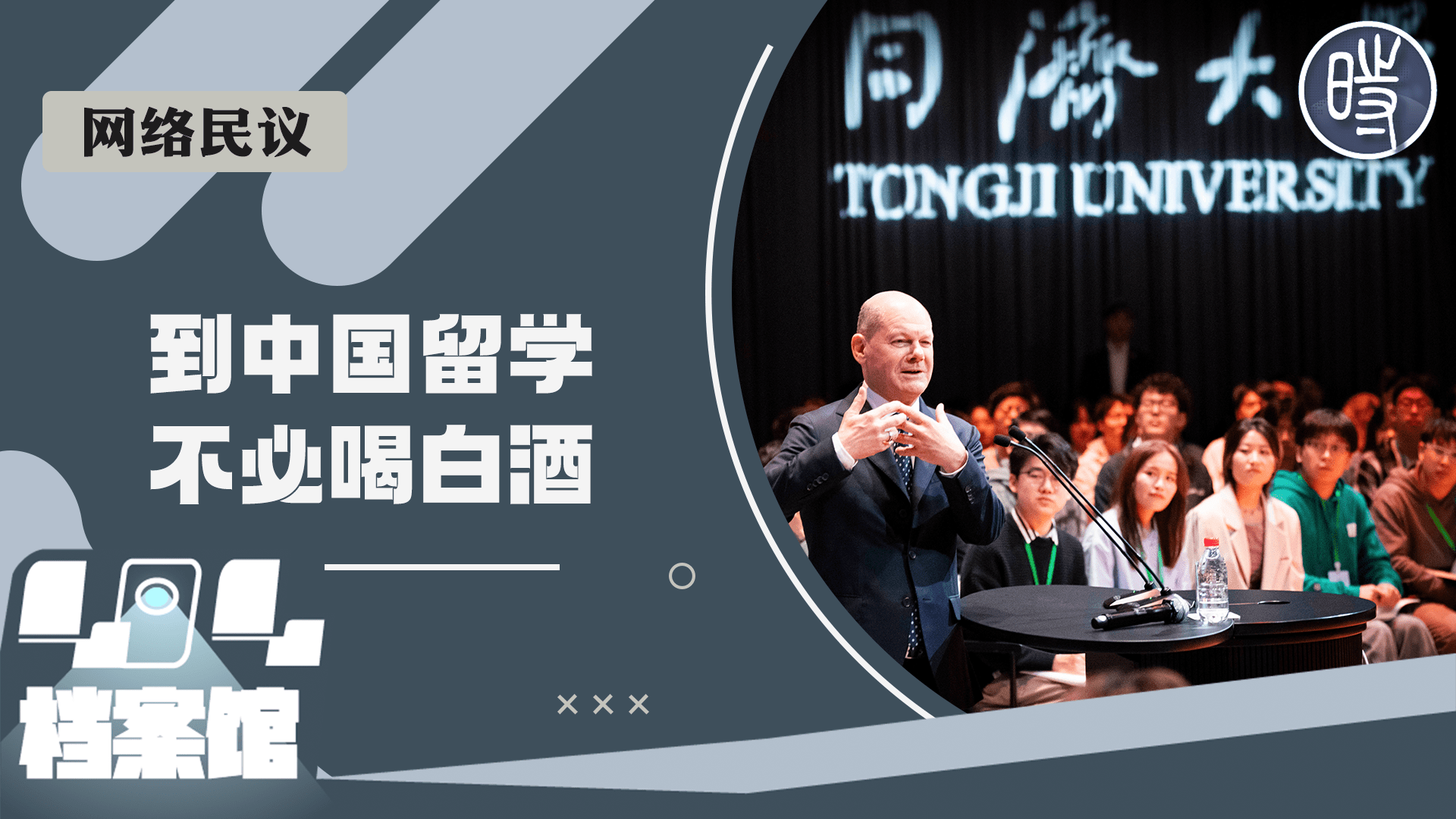原作者:
来源In China, to get rich is not always glorious
译者beluky
In China, to get rich is not always glorious
富裕的中国,不幸福!
China is wealthier – but its people are unhappier. Its new five-year plan will hope to cheer them up
中国更富裕,人民不幸福。中国政府新一轮五年规划,图谋能使人民快乐起来。
Two years ago a book called Unhappy China became a bestseller in the People’s Republic. It was a collective effort by a group of nationalists who complained that their government was giving in to western bullying. It carried an unpleasant political message, but it did raise the question of why – given that China had prospered for 30 years and its people were better off than they had been for 50 years – should unhappiness be an issue at all.
两年前,在一帮抗议中国政府过于屈服西方强国的中国民族主义者的追捧下,一本名为《中国不高兴》的图书成为中国国内最畅销书之一。该书传递了中国大众强烈不满的政治信息,同时也激起了这样的疑问:既然中国繁荣发展了30年,人民群众比50年前更富裕,中国人民的幸福度却成了一个根本问题?
Regardless of their motive, the authors of Unhappy China were on to something. Earlier this week, as China Digital Times reported, China’s censors in the State Council Information Office issued an order: “All websites are requested to immediately remove the story ‘In China 94% Are Unhappy; Top-Heavy Concentration of Wealth’ and related information. Forums, blogs, microblogs, and other interactive spaces are not to discuss the matter.”
先把中国民族主义者的动机以及该书作者希望表达的意图,放在一边,来看看本周早些时候,《中国数字时代》的一篇报道:中国信息审查机关——国务院新闻办公室发布了一条命令:“一切网站必须立即撤除‘财富高度集中,94%中国人不高兴’有关内容。论坛、博客、微博以及其它网络互动空间不得讨论相关事宜”。
The figures came from a global Gallup Poll in which Denmark scored an impressive 82% of respondents who described themselves as happy. In China only 6% said they were, ranking the country 125th. China’s least happy respondents lived in the first-tier cities, where people are relatively better off. Results like this are not very good news for a government whose legitimacy for the past 30 years has rested on rising living standards.
一份来自环球盖洛普调查机构的数据显示,丹麦高达82%的民众反映自己幸福,排名第一;而中国只有6%的人声称自己幸福,排名第125位。而中国一线城市、相对富裕的被调查民众却最不幸福。对于中国政府来说,这样的调查结果相当槽糕,因为中国政府执政是否成功取决于过去30年来人民的生活水平是否提高。
Since Deng Xiaoping announced that “to get rich is glorious”, a minority – most of them in the Communist party – have grown very rich indeed. Millions more are better off. However, for the last decade, average household incomes have flatlined as a percentage of GDP and the wealth gap has yawned. Across China, people have rediscovered the well-rehearsed truth that material satisfaction is relative.
邓小平曾提出 “致富最光荣”。确实,当代中国的少数人(大部分为党内人士)异常富裕,亿万民众也较以前有钱。但是过去的10年中,普通国民的收入在GDP中的占比并没有增加,贫富差距十分严重。整个中国,人们已意识到这不断被重复的真理:物质幸福是相对的。
The party is worried. For the last two Sundays some areas of Beijing and other cities have been swamped with police to forestall any possible imitation of demonstrations in the Middle East.
中国政府已经开始担忧。上个周末,北京以及其它一些城市出动大批警察,阻止发生任何效仿中东国家示威游行的可能。
In China there has been little public response but nothing seems to calm the jagged nerves of a government that now spends more on internal security than on external defence.
对于中东局势,中国民众反应平淡,但这似乎不能舒缓中国政府的紧张神经。中国政府当前更多的是强调内部安全,而不是对外防御。
As the National People’s Congress meets in Beijing this week, happiness is much on its collective mind. Before the 3,000 delegates is China’s 12th five-year plan, an economic blueprint that aims to spread the wealth a little more evenly. From this year, China will attempt to chart a course that will transform the economy from its current export-led, low-wage, low added-value model into a greener and more equitable mode of development. If it succeeds, it will be a shift in China’s economic direction that will have global importance.
全国人民代表大会这周在中国北京举行,民生幸福问题被提上议程。摆在3000多人民代表面前的是,中国十二五规划的经济蓝图,规划的目标是缩小贫富差距。从今年起,中国将努力规划实施经济转型,从当前的出口外向型、劳动密集型、低附加值转型经济模式,转变为更为环保、更为公平的发展模式。如果成功实施,国经济发展的方向将会发生转变,对全球经济产生重大影响。
The fear of popular discontent is only part of it. The real imperative is that China has exhausted all the elements that made the old economic model work: energy, resources, cheap labour, water and markets.
中国政府实施经济转型,担忧其民众满意度下降只是其中一个原因。而真正的内在动因是,中国已耗尽了驱动旧经济模式的所有要素:能源、廉价劳动力、水资源及消费市场。
It has the world’s most rapidly ageing population, and the most developed parts of China are facing labour shortages that make wage levels uncompetitive. Industrial pollution of air and water have brought soaring cancer levels and irreversible land degradation, and the value added by churning out cheap goods for richer countries is not enough to pay for the damage. China has to change or implode.
由于拥有世界老龄化程度最快的人口,中国发达地区现在面临着工资缺乏竞争力所带来的劳动力紧缺问题。同时,面对处理空气及水污染带来的癌症发病率增高、不可逆转的土地贫瘠化等环境破坏问题所支付的费用,向发达国家出口廉价商品所获得的微薄附加值利润,已入不敷出。中国处在要么转型、要么崩溃的境地。
Like Japan, Taiwan and South Korea before it, China must now attempt to move up the value chain, inventing its own technologies, not assembling those of others. There will be huge investment in seven strategic emerging industries including electric cars, biotechnology, nuclear and renewable energy, and IT. Government investment in research and development is aimed at ensuring that the next generation of key technology patents are Chinese.
像日本、台湾以及南韩先前的情况一样,中国必须尝试提高产业链,发展自主技术,而不是只为其他国家组装产品。为此,中国将大力提高在电动汽车、生物技术、核能源、可再生能源、信息产业等七大新兴产业上的战略投资。中国政府加大研发投资的目的在于:确保中国在下一代关键技术专利上能有一席之地。
More people will move from the countryside to cities, which will aim to be more habitable as China shifts its climate narrative from the defensive truculence of “the west caused it; the west must fix it” to a story of economic opportunity and promise. If the plan works, the west will have to look at its assumptions of technological dominance, and the country that has been emblematic of the world’s environmental problems could become the key to solving them. Whether it will succeed in cheering up 94% of Chinese who are presently unhappy is another question.
未来,越来越多的中国人口将从农村迁往城市。随着中国政府面对环境问题所持态度的改变,收回“西方国家造成的问题,应该由西方国家来解决”的强硬辩解,宣称将城市化进程当作经济发展的机遇,承诺建设宜居新城市。如果计划得以实现,西方国家必须重视中国在处理环境问题上的存在技术优势的可能,既然中国一直是全球环境问题的代表,中国能否解决其环境问题是解决全球环境问题的关键。 但能否成功取悦94%感觉不幸福的中国民众,则是另外的问题。

如果中国下一步计划得以实现,西方国家将失去技术优势。出自Alamy图库。
相关文章:
![]()
要翻墙?(发邮件到Gmail):caonimaxingdongATgmail.com








.png)

